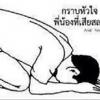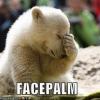เผื่อคุณ Galaxy จะไม่เข้าใจ ผมขอขยายความอีกหน่อย
ผมเคยเอามาโพสทีนึงแล้ว ขอเอามา repost แล้วกัน
Plato's Five Forms of Government or the Five RegimesIn The Republic, Plato describes the five forms of government from best to worse and advocates that the ideal state is aristocratic. The five forms of government are:- Aristocracy – this is the best form of government, according to Plato, in which the ruler is a philosopher, someone whose soul has been educated through the contemplation of arts and the exercise of the intellect. Having studied philosophy, this ruler would know the true virtues and, therefore, he would be able to lead people towards wellness and prosperity. Since the ruler would be virtuous, he would not want to deceive and abuse the citizens;
- Timocracy – this is the form of government ruled by warriors in which all the political decisions aim to bring military power and status. Timocrats may seek virtues just as the aristocrats, but they also pursue power, which can lead them to wars and combats. Timocracy, according to Plato, is a kind of government that arises when aristocracy starts to degenerate;
- Oligarchy – this is the system of government that establishes a division between the rich and the poor. The rich ones, which are fewer, rule and the poor must subject. This, according to Plato, is a problem because rich people are not necessarily virtuous, and when the power is in the hands of non-virtuous people, the rich will attempt to become richer and the poor might become even poorer due to bad policy, generating revolutions;
- Democracy – democracy is the child of oligarchy. Since people cannot agree with the rich ruling and deceiving the poor, people start to believe that if they could choose the ruler, their interest would prevail. The poor are greater in numbers so they elect one of them to be in charge. However, since the masses aren't educated to become virtuous or to exercise the intellect, they are not apt to make political decisions that prioritize their real needs;
- Tyranny –democracy naturally degenerates into tyranny and society becomes a total chaos in which there's no rule, no priorities and no laws. Whoever is stronger takes charge and does as he pleases. Nobody is able to remove a tyrant man from the power, as there's no law to be obeyed.
http://suite101.com/...mocracy-a277698 ^^ ผมมองว่าเราอยู่ในช่วงของการ devolution ถอยหลังเข้าคลองจาก Aristocracy ลงมาเหลือแค่ Democracy และถึงกับลดลงเหลือแค่ Tyranny เป็นบางช่วงด้วยซ้ำ
Democracy มันมีจุดอ่อนอย่างที่ปราชญ์กรีกต้นตำรับเขาบอก (However, since the masses aren't educated to become virtuous or to exercise the intellect, they are not apt to make political decisions that prioritize their real needs;)
และในท้ายที่สุด มันจะพัฒนา"ลง" ไปเป็น Tyranny อย่างหลีกเลี่ยงไม่ได้ (democracy naturally degenerates into tyranny and society becomes a total chaos)
แต่ประเทศไทยเลือกที่จะเอาระบบ Democracy มาใช้ (จากระบบเดิมของเราที่อาจจะดีกว่าอยู่แล้ว) เราก็ต้องทนอยู่กับจุดอ่อนของมัน ไม่อย่างนั้น มันก็จะเกิด chaos และเปิดโอกาสให้พัฒนาลงไปต่อเป็น Tyranny ได้ (Whoever is stronger takes charge and does as he pleases)
คนรากหญ้าเขาเข้าใจถูกแล้วหล่ะครับ แต่ปัญหาคือคุณต่างหากที่ต้องการระบบอื่นซึ่งไม่ใช่ระบบประชาธิปไตย (เพราะคุณเห็นจุดอ่อนของมัน) คุณต้องการระบบที่ดีกว่านี้ แต่คุณดันไปเรียกระบบที่คุณอยากได้ว่าประชาธิปไตย แล้วบอกว่ารากหญ้าเขาไม่มีความรู้เกี่ยวกับประชาธิปไตย
ผมไม่ได้บอกว่าคุณ Galazy กับรากหญ้าโง่ๆ คนหนึ่งจะฉลาดและมีวิจารณญานเท่ากัน
แต่ผมบอกว่าที่คุณ Galazy ไปบอกว่า "คนรากหญ้าชอบเอาประชาธิปไตยมาอ้างว่าทุกคนมีสิทธิ์เท่าเทียมกัน มีหนึ่งเสียง...ทั้งทั้งที่พวกนักประชาธิปไตยทั้งหลายก็รู้ดีว่า คนรากหญ้าส่วนใหญ่ ไม่เคยรู้เรื่องประชาธิปไตย"...
อันนั้นมันไม่ถูก
เพราะรากหญ้าพวกนั้นเขาเข้าใจและรู้จักประชาธิปไตยดี อาจจะดีกว่าคุณด้วยซ้ำ
คุณเข้าใจที่ผมพูดหรือเปล่า?
Edited by Leeporter ขี้แพ้, 19 March 2013 - 14:56.








































